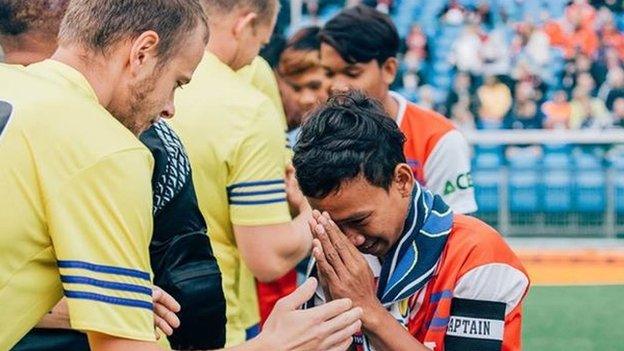Cardiff 2019: What is the Homeless World Cup?
- Published
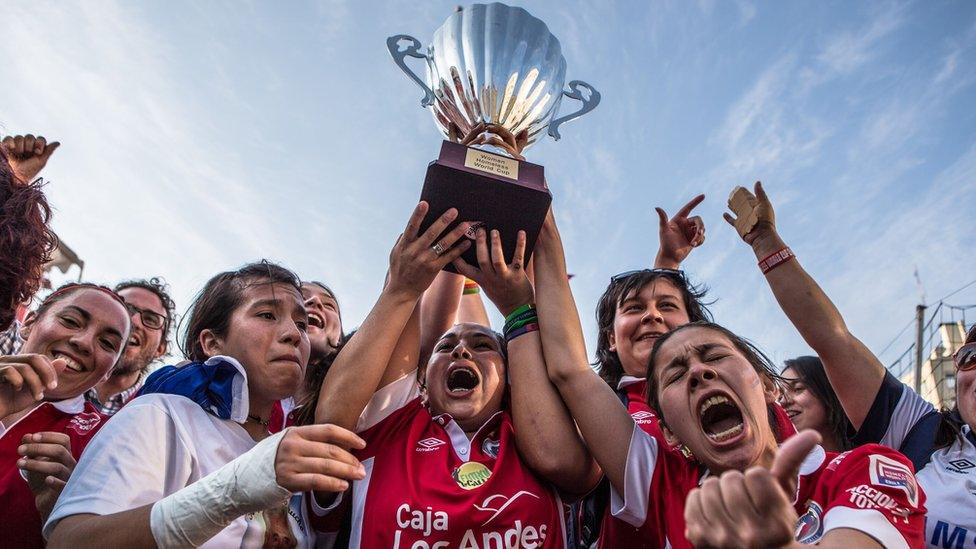
Chile's women won the Homeless World Cup in their home country when Santiago hosted it in 2014
Cardiff is playing host to the 17th Homeless World Cup football tournament which kicks off on Saturday.
It was launched by Big Issue Scotland co-founder Mel Young and Austrian journalist Harald Schmied, following a conference about homelessness in 2001.
They came up with the idea over a beer and two years later the first tournament was held in Graz, Austria.
Since then, it has been held annually across the world including Melbourne 2008 and Rio 2010.
The tournament is organised by the Homeless World Cup Foundation charity which operates through a network of more than 70 street football partners around the world.
Its aim is to use football to inspire homeless people to change their lives and to change public perceptions of homelessness along with the issues around it.
Mr Young said the 2001 conference was made up from people involved in a network of street papers - such as The Big Issue - worldwide.
"Myself and another of the editors Harald Schmied were having a beer and saying how good the conference was but there were no homeless people there," he said.
"We came up with this idea where homeless people would be involved.
Dee Sansome: Football "helped me start achieving and believing in myself"
"The next day at breakfast we had a great conversation. Sometimes these conversations don't lead to anything but we said let's make this happen.
"We all had a background of working with homeless people. We all realise the power football has and it's a simple game to play."
Each four-a-side match is 14 minutes long, made up of 7-minute halves and games are decided by penalties if they end in a draw.
The first Homeless World Cup in 2003 involved 18 teams with Austria beating England in the final.
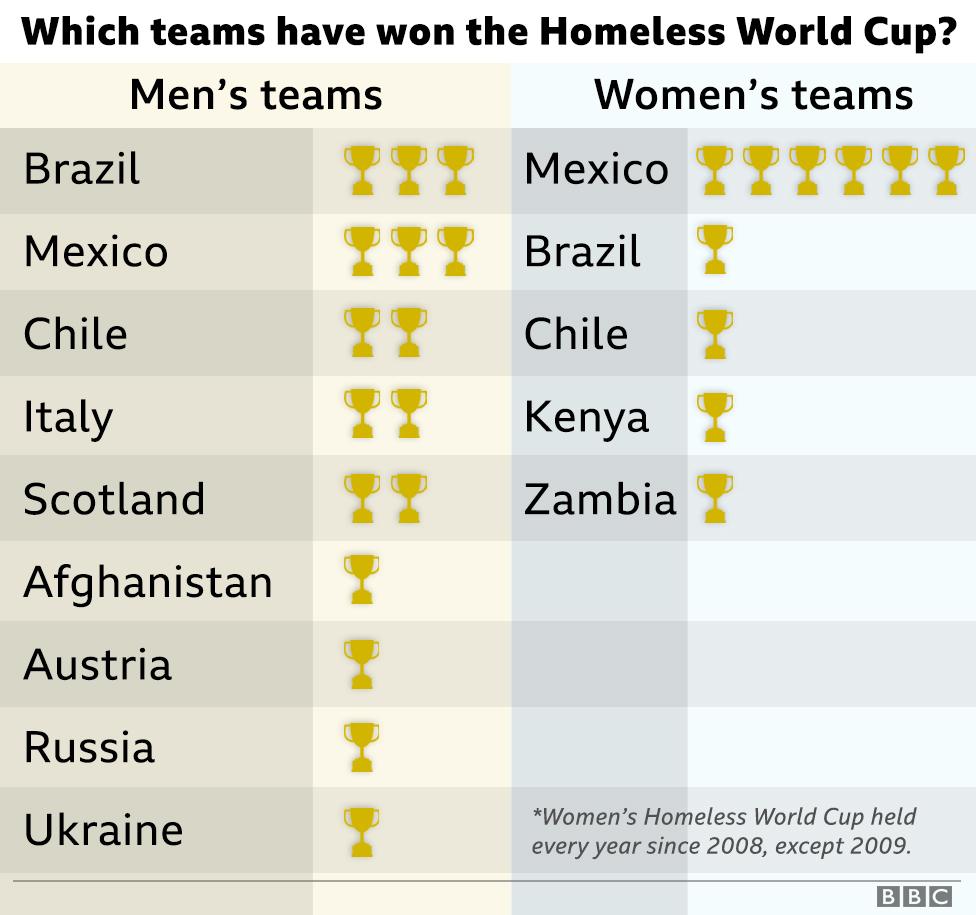
The countries which have won the Homeless World Cup since its inception
Edinburgh and Glasgow are the UK cities which have previously hosted the free entry tournament, while host cities include Paris, Milan and Cape Town.
Last year, Mexico City, played host for the second time attracting 160,000 spectators over the week.
This year's event in Cardiff's Bute Park will include men's/mixed and women's teams featuring about 500 players from 48 countries.
Mr Young said finding players can be as straightforward as one of its partners working on the ground inviting people in a hostel to have a kick-about.

Glasgow hosted the tournament in 2016, while Edinburgh is the only other UK city to have previously played host
"That's the simplicity of it," he added. "I say participate and forget about your troubles for half-an-hour. The psychological steps are very, very important.
"You can be useless at it or wonderful and be in the same team."
Mexico are the current world champions in both the men's and women's competitions.
"Crucially for us, although it's a great football event and football pulls us together, it's the end of a journey," said Mr Young.
"They are only allowed to come here one time and then they are moving on.
"80% of the players - after our event - have changed their lives forever - come off drugs, got houses, got jobs go to college. It's very impactful and that's what drives us."
How the tournament works
There are two categories - men's/mixed and women's. There are three stages of competition over the week and several different trophies to win on finals day, 3 August.
First Stage: Each team plays the other teams in their respective group once. The position they finish determines which group they play in during the second stage.
Second Stage: Again teams play each other once in a group. The first and second teams from each group progress to play for the Homeless World Cup (men's/mixed) or Women's Homeless World Cup (women's). Those finishing third and fourth compete for the next highest trophy, and so on.
Trophy Stage: Eight teams compete for each trophy, with each competition having quarter-finals, semi-finals and finals. This includes placing games for all teams. All teams play three games in this stage.
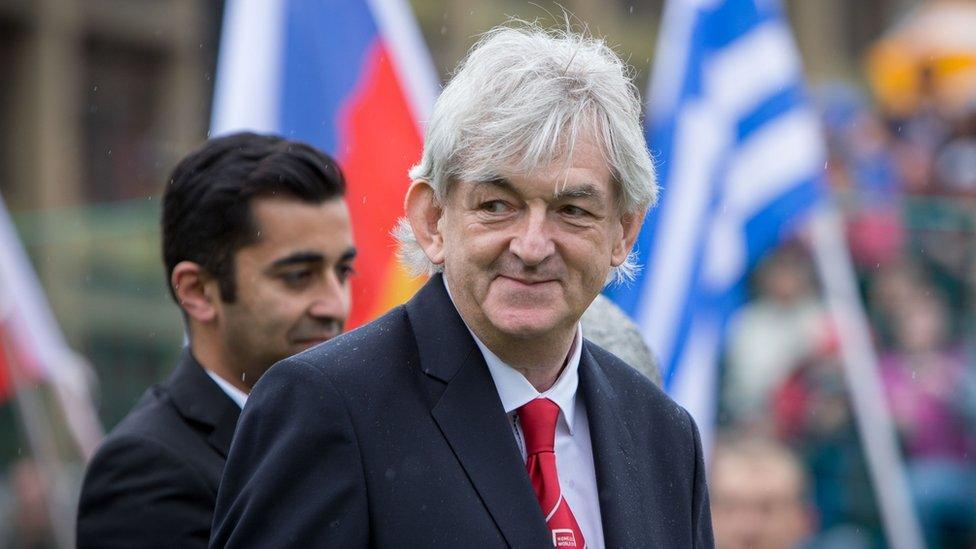
Mel Young co-founded the Homeless World Cup in 2003
- Published3 May 2019
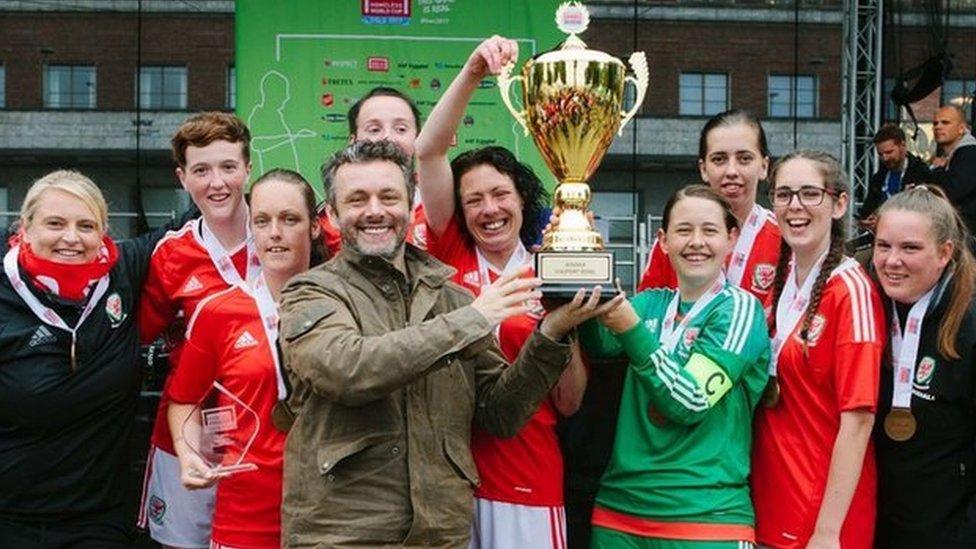
- Published3 March 2019
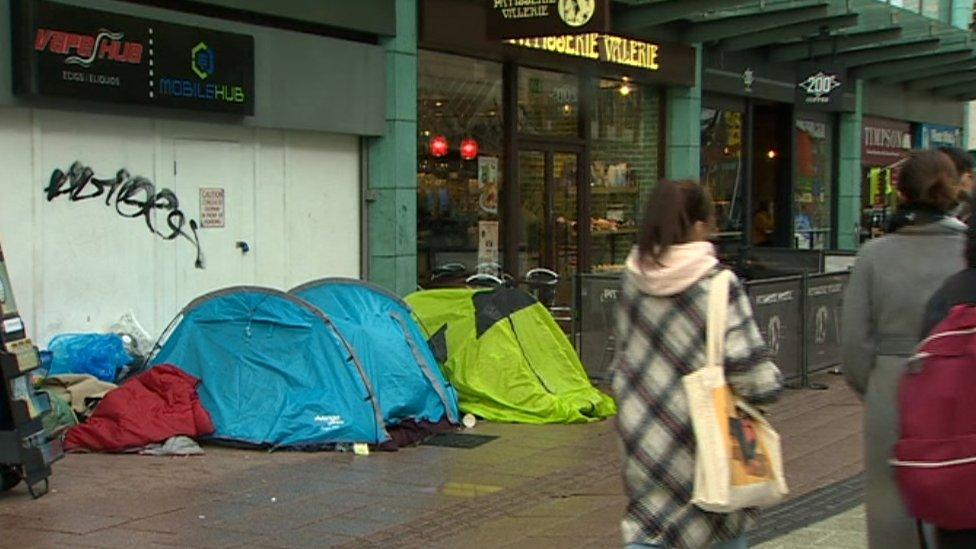
- Attribution
- Published7 September 2017
